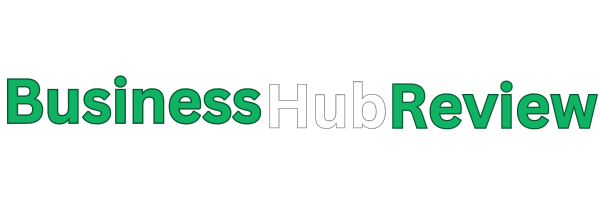Unlock the secrets to acing job interviews with our comprehensive interview questions and answers guide. Learn how to confidently respond to familiar and challenging queries, boost your confidence, and land your dream job.
It’s essential to prepare for interviews in today’s cutthroat job market. It’s crucial to be prepared to respond appropriately to typical interview questions and answers if you want to land your dream job. This article will give you a thorough overview of interview questions and solutions, ensuring you are well-prepared for your upcoming interview.
Why Do Interviewers Ask Questions?
Employers ask candidates questions during interviews to determine their qualifications, abilities, and appropriateness for a position. They fall broadly into three categories:
1. Frequently Asked Questions:
These broad inquiries arise in most job interview questions and answers. Examples comprise:
- Describe yourself to me.
- What are your advantages and disadvantages?
- You wish to work here, why?
2. Interview questions about behavior
These inquiries probe your prior behaviour and frequently start with statements like “Tell me about a time when…” or “Give me an example of…” Examples comprise:
- Describe a complex scenario you had to deal with at work and how you handled it.
- Give an instance when you had to work with a challenging coworker.
Also Read: Overview of Sol Compact Heater a Fraud or a Real Heat Source ever
3. Questions about the job or technical matters:
These inquiries inquire specifically about the position you’re applying for and gauge your familiarity and aptitude. For instance, you can be required to answer a coding challenge if you’re seeking a position as a software engineer.
How to Effectively Respond to interview questions and answers
Now that you are familiar with the different interview questions and answers, let’s discuss how to respond to them successfully:
1. Be well-prepared. Research the business and the position.
Examine your resume, and be prepared to talk about your experiences.
Work practice your responses to typical interview questions in front of a mirror or with a friend.
2. Employ STAR Behavioral Question Method:
- Circumstance: Describe the issue or event.
- Task: Explain your tasks and function.
- Action: Talk about the steps you took to deal with the circumstance.
- Result: Talk about what went well or what you took from the experience.
3. Be Honest
Always be sincere in your communication. Businesses value authenticity.
4. Highlight Your Skills
Tailor your responses to draw attention to your qualifications and work history pertinent to the position.
5. Ask Questions:
Consider inquiries you want to make to the interviewer. This indicates your enthusiasm for the organization and the position.
Developing Your Interview Preparation Skills
Be Prepared for Weird Questions
While it’s essential to practice for typical interview questions and answers, certain employers may also ask you unusual or surprising questions to gauge your creativity and adaptability. These can include inquiries like:
- “If you were a superhero, what superpower would you choose and why?”
- “What’s the most innovative idea you’ve ever had?”
- “Tell me about a time when you failed and what you learned from it.”
The secret to answering these questions is to remain composed, act quickly, and give responses highlighting your best traits, inventiveness, or problem-solving abilities.
Do the Right Attire
It’s essential to make a good impression immediately; your appearance significantly contributes to that. Aim to dress more formally than is required by learning about the company’s dress code and culture. This demonstrates your esteem for the company and its principles.
Body Language Is Important
Your physical cues can exude competence and confidence. Throughout the interview, keep eye contact, extend a solid handshake, and sit up straight. Avoid fidgeting, as it may be a sign of anxiety.
Send a thank-you note as a follow-up.
Send a thank-you note to the interviewer after the interview to convey your appreciation for the chance to participate. It’s an opportunity to reaffirm your interest in the job, highlight important information from the interview, and make an excellent first impression.
Managing Tough interview questions and answers Situations
Handling Nerves
Nerves are common during interview questions and answers but can hurt your performance. Here are some techniques for controlling anxiety:
- Before the interview, practice relaxation methods like deep breathing exercises.
- To increase your confidence, thoroughly prepare.
- To cultivate a good attitude, picture yourself acing the interview.
- Continually assess the firm during an interview to determine if it fits you well.
Justification of Employment Gaps
Be prepared to address any gaps in your career history honestly. Explain the reasons for the time gap in a few words, and highlight any learnings or achievements you made. Any relevant talents you have should be highlighted.
Responding to questions that are improper or illegal
Some interview questions about your age, marital status, or religion may violate legal lines. Refocus the conversation politely on your qualifications and the demands of the position. If someone inquires about your family situation, you can say, “I’m fully committed to my career and meeting the job’s responsibilities.”
a post-interview analysis
Take some time to evaluate your performance after the interview questions and answers:
- What aspects of the interview went well?
- What could you do better for the upcoming interview?
- Did you express your qualifications and enthusiasm for the position clearly?
- Were there any inquiries you weren’t expecting, and how would you be ready for them in the future?
- You can continually improve your interviewing abilities with the help of this self-evaluation.
Further Resources
To better prepare for your interview questions and answers, think about looking for additional advice and materials:
Interview Coaching: A qualified interview coach can offer individualized advice and practice interviews.
Online Courses and Books: Books and online courses are among the many options to hone your interviewing abilities.
Networking: Speak with experts in your field to get their advice and learn about typical interview procedures.
interview questions and answers
What should I do to get ready for a job interview?
Research the organization, get comfortable answering typical interview questions, and be prepared to talk about your experiences and abilities.
What should I do if I need help solving a technical problem?
Be honest if you need to know the solution to a technical query. You can also talk about your capacity for problem-solving and openness to learning.
How do I defuse my anxiety before an interview?
To calm your nervousness, focus on deep breathing, picture yourself succeeding in the interview, and remember that the interviewer wants to get to know you.
How much time should I allot for each interview questions and answers?
Aim for brief responses that give just enough information to fully address the topic without going into excessive verbosity. Generally speaking, 1-2 minutes for each answer is a good benchmark.
Is it acceptable to inquire about pay at the initial interview?
Although it’s essential to understand remuneration, saving salary and benefits questions for later in the interview are usually preferable unless the interviewer specifically mentions them.
How can I remain composed and calm during an interview questions and answers?
Before the interview, practice relaxation techniques like deep breathing. Remind yourself that you are well prepared for the discussion and that it is an opportunity to demonstrate your abilities.
Conclusion
job seekers must prepare for interviews. Your chances of succeeding will increase significantly if you know the many interview questions and how to respond to them successfully. To make a good impression on potential employers, remember to be genuine, highlight your skills, and ask questions. I wish you success in your employment.


2 Comments
Pingback: AI and Recruitment: The Future of Talent Acquisition - Globe Echo
Pingback: AI And Recruitment: The Future Of Talent Acquisition - RSSFeedsCloud